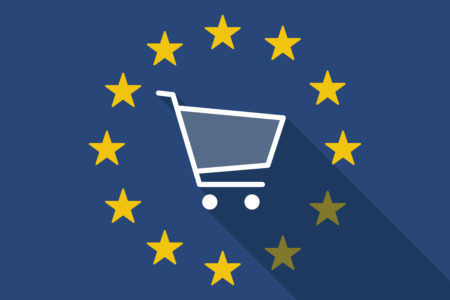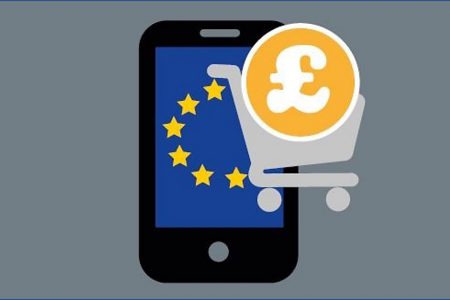5 July 2021
What’s now different?
Since 1 January 2021, any business which:
- operates an Online Market Place (OMP) that facilitates the sale of goods to the UK from overseas or local goods sold by an overseas seller, or
- sells goods directly (without OMP involvement) to UK customers where the goods are a) Outside UK at the point of sale and b) Imported to the UK in consignments not exceeding £135 in value
… is required to have a UK VAT registration.
What is an Online Market Place?
An Online Market Place (OMP) is classified as a business using a website or mobile phone app (such as a marketplace, platform or portal) to handle the sale of goods to customers which meet all of the following conditions:
- In any way sets the terms and conditions on how goods are supplied to the customer
- Is involved in any way in authorising or facilitating customers’ payments
- Is involved in the ordering or delivery of the goods
Exclusions to this are businesses which only provide one of the following:
- The processing of payments in relation to the supply of goods
- The listing or advertising of goods
- The redirecting or transferring of customers to other electronic interfaces where goods are offered for sale, without any further intervention in the supply
How the rules have changed how businesses charge and pay VAT
The Supply of E-services
These are specific digital services that were, pre-Brexit, covered by the Mini One-Stop Shop (MOSS). MOSS was a way of paying VAT on supplies of certain digital services if businesses were:
- a UK business who made supplies to consumers in EU member states
- a business based outside the UK and EU and which made supplies to UK or EU consumers.
The digital services included telecoms, broadcasting and certain electronic-services. From 1 January 2021, non-UK suppliers of such services, now have to be registered for UK VAT and charge UK VAT when they sell their services to consumers. For more detail see here. The current definition of digital services included and not included in the rules can be found here.
The Supply of Goods
Pre-Brexit, the VAT treatment when supplying goods online to private EU consumers was covered by the distance selling regime. These rules required businesses to charge local VAT until the business exceeded set thresholds in other EU countries.
Since 1 January 2021, a new set of compulsory rules requires VAT to be accounted for on consignments with a value of less than £135.00. This will either be the responsibility of the seller or the online marketplace depending on the circumstances.
The rules apply on both business to consumer (B2C) transactions and, if the recipient fails to mention that they are a business, on business sales (B2B) as well. For more detail, see here.
Consignments over £135.00 are subject to the normal rules on imports. This could mean that the overseas seller will need to register for VAT if they are selling their goods on a duty paid basis. If the sale is on a duty unpaid basis the import VAT will be collected from the customer by the shipping agent.
This means that a seller who wants to do the right thing and deal with their GB VAT obligations could have 3 sets of rules to consider depending on whether:
a. They are selling directly from their own website
b. Selling via an online marketplace
c. Have items both above and below £135.00
It is also worth noting that the £135.00 threshold is based on the EU €150.00 threshold which is, in turn, based on OECD rules. It also means that the UK cannot just decide to have a different threshold to other territories and do its own thing.
The implications for supplies to Northern Ireland
The new rules also demonstrate the challenges of the Northern Ireland Protocol. With the sale of goods, the new rules only apply to shipments of goods destined for Great Britain and not the whole of the UK.
When it comes to consumers in Northern Ireland (NI):
- E-services – NI consumers are subject to the same rules as GB consumers. This means e-service providers will need to have a UK VAT registration.
- Goods – As NI is treated as part of the EU for supplies of goods it follows that B2C sales are covered by the new EU rules. B2B supplies are deemed as exports from GB and imports to NI. This means there is a requirement for a Customs declaration as the goods cross the virtual border in the Irish sea.
Can we help?
We are currently helping our clients understand the implications of these changes for their e-commerce business operations. If we can help in any way, please get in touch with our team of specialists shown on this page. See also our recent articles, Make Sure You’re In The Know When It Comes to EU VAT and New EU E-Commerce VAT Regimes to be aware of
Specific advice should be obtained before taking action, or refraining from taking action, in relation to this summary. If you would like advice or further information, please speak to your usual Shipleys contact.
Copyright © Shipleys LLP 2021













